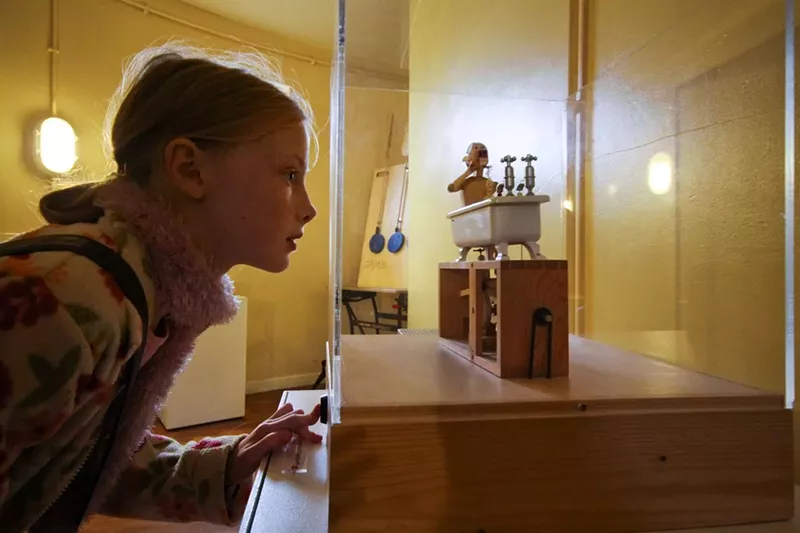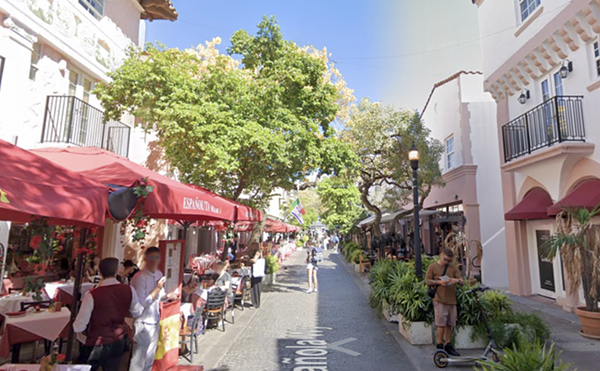What made these creations so special is that — unlike puppets, which constantly required human hands to move — automata were able to move by themselves once activated. Even today, these personable machines continue to evoke a sense of awe among children and adults alike; shows featuring them attract thousands of wide-eyed guests each year.
In celebration of their enduring charm, Andrea Hart, the lead exhibition developer at the Frost Museum of Science, tells New Times the museum will open a special exhibition August 5 called "The Mechanicals," dedicated to automata.
"Automata, and even what we consider robots, have been a part of human history dating back to ancient Egypt," Hart says. "Throughout time, humans have been riveted by mechanical toys and gadgets."
Building on the accomplishments of their engineering forebears, Europe's clockmakers were able to fashion humanoid mechanical toys that not only moved but also moved in ways that were organic and even purposeful. Animated by the whirling of cogwheels, automata were programmed to do varying tasks, such as sketch landscapes, write poems, and even perform magic tricks.
"When it comes to automata, you add a narrative layer to this fascination," Hart says, elaborating on people's attraction to gadgets. "Each mechanical tells a story through the movement of gears and mechanisms. It’s storytelling through simple engineering."
"The Mechanicals," which is a collaborative project between Science Projects and Cabaret Mechanical Theatre, will present a dozen of England's most iconic automata. (Their permanent home is a few blocks from Buckingham Palace.) The exhibit will also include displays that break down the engineering principles behind their movements. By pulling a lever or turning a crank, guests can watch how pulleys, ratchets, and levers underpin the mechanicals' animation.
The educational displays are especially illuminating, considering the secrecy that once surrounded the making of automata. Because the craft of creating the machines was so competitive, with a limited number of high-end clients who could afford them, many clockmakers withheld telling others about these engineering underpinnings in an attempt to prevent competition. That meant the artisans' trade secrets often died with them.
On top of learning the secrets of the automata and admiring the British mechanicals, guests will also be able to view 50 additional automata from the local collection of Dr. Andrew and Debbie Hirschl. There will also be two works from Arthur Ganson, a kinetic artist who uses simple materials to build witty mechanical pieces that showcase the quiet drama of physical motion.
The Frost 's new exhibition includes more than 60 automata, a number that has Hart at a loss for words when it comes to naming her favorite. "Each piece adds something special to the exhibition," she says.
"The Mechanicals." August 5 through November at Frost Museum of Science, 1101 Biscayne Blvd., Miami; 305-434-9600; frostscience.org. Admission costs $28 for adults and $20 for children ages 3 to 11 and is free for members and kids 2 and under.













